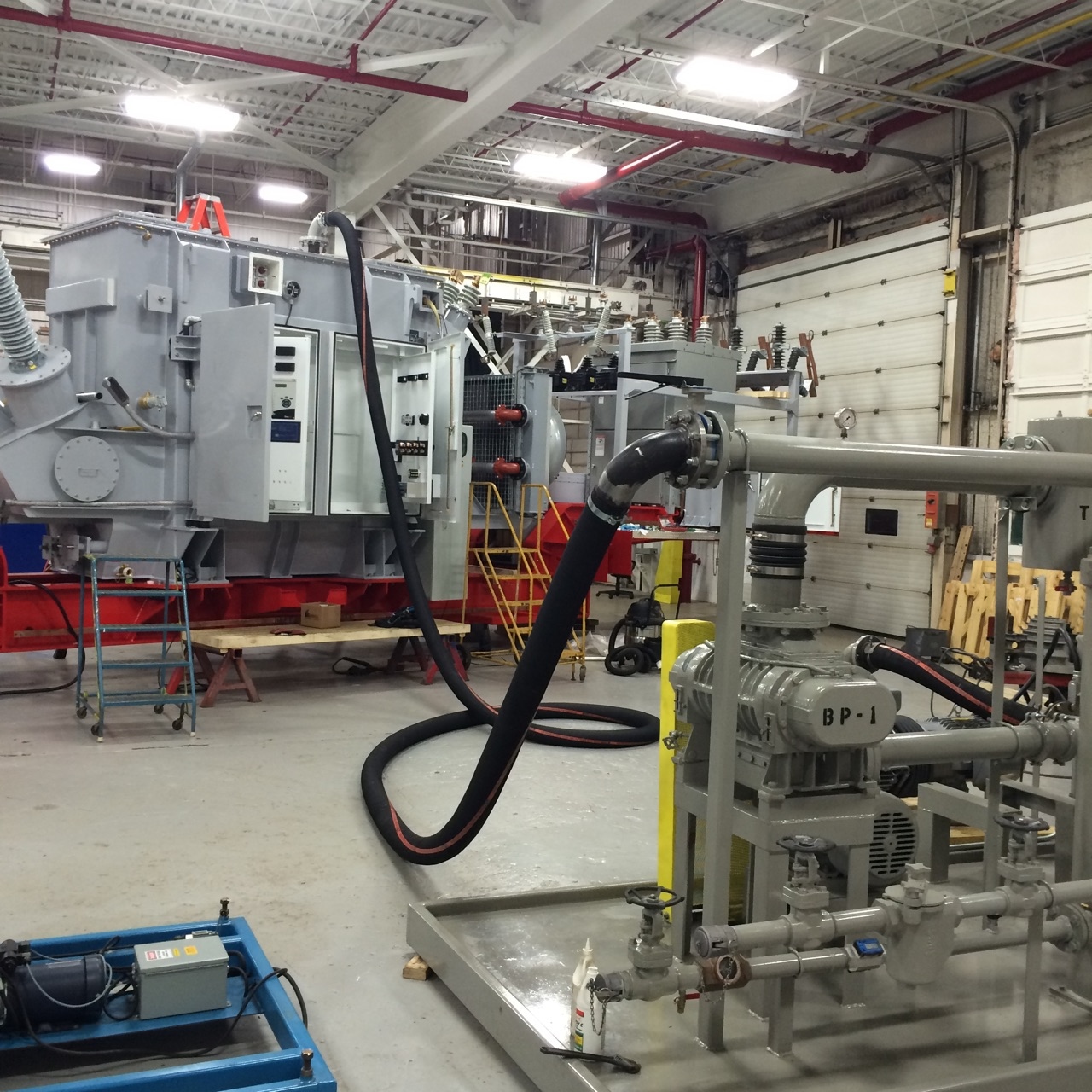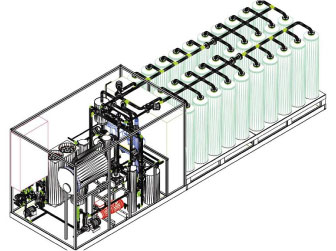Important Insights into Transformer Oil Regeneration for Operators
Important Insights into Transformer Oil Regeneration for Operators
Blog Article
Cost-efficient and Eco-Friendly Transformer Upkeep With Regenerated Oil
The combination of restored oil in transformer maintenance presents an engaging method for organizations looking for to enhance both cost-efficiency and eco-friendliness. By making use of oil that preserves efficiency standards similar to virgin options, organizations can dramatically reduce functional costs while concurrently minimizing their ecological effect. This strategy not just resolves the financial concerns connected with waste disposal and constant oil modifications however also adds to broader sustainability efforts. The implications of this change expand past immediate advantages; comprehending the full scope of its advantages calls for a more detailed exam of the concepts and methods included.

Understanding Regenerated Oil
Restored oil, typically described as re-refined oil, is a vital element in the upkeep of transformers, providing both ecological and financial advantages. This oil is obtained from used mineral oils that have undergone a thorough filtration procedure, successfully removing impurities and bring back the oil to a quality comparable to virgin oil. The regeneration procedure commonly entails a number of stages, including physical separation, chemical therapy, and purification, ensuring that pollutants such as sludge, water, and hefty steels are removed.
The use of regrowed oil in transformers is vital for enhancing efficiency and extending tools life expectancy. Top quality re-refined oil preserves its dielectric buildings, making sure efficient insulation and avoiding electric malfunctions. Additionally, it has outstanding thermal conductivity, which assists in taking care of the functional temperatures of transformers, eventually improving their reliability and performance.
Additionally, adopting restored oil not only supports cost-efficient maintenance strategies yet likewise decreases the demand for new oil manufacturing, consequently conserving natural deposits. Transitioning to re-refined oil is a smart choice for companies intending to preserve high operational requirements while at the same time managing budget plan constraints. Recognizing the properties and advantages of restored oil is important for informed decision-making in transformer upkeep techniques.
Environmental Advantages
The usage of regrowed oil in transformer upkeep offers considerable ecological benefits that add to sustainable techniques within the power market. Among the main benefits is the decrease of waste oil disposal, as regenerated oil is stemmed from the recycling of used transformer oil, considerably decreasing the quantity of contaminated materials produced. This procedure assists minimize the environmental dangers connected with improper disposal methods, which can cause dirt and water contamination.
In addition, the regeneration process saves all-natural sources by minimizing the need for new base oil manufacturing - Transformer Oil Regeneration. This conservation effort not just minimizes the removal effect on ecosystems but also reduces the carbon impact connected with oil production. By embracing regrowed oil, business can advance their dedication to ecological stewardship and line up with worldwide sustainability goals
Furthermore, the use of regrowed oil improves the overall efficiency of transformers, resulting in reduced energy losses and lower greenhouse gas emissions. As the energy market significantly encounters stress to reduce its environmental impact, embracing restored oil stands for a positive method to achieving both environmental and operational goals. In summary, the ecological advantages of utilizing regenerated oil are multifaceted, advertising a much healthier planet while supporting the power market's transition towards sustainability.
Price Cost Savings and Efficiency
Making use of regenerated oil in transformer upkeep can result in substantial expense savings and improved functional effectiveness for power companies. Restored oil, created through innovative purification procedures, provides equivalent efficiency to new oil at a portion of the cost. By recycling oil that would or else be discarded, firms can decrease their buying expenditures while minimizing garbage disposal costs.
Moreover, the extended life process of regenerated oil translates to lowered frequency of oil modifications, resulting in lower labor prices and lowered downtime for maintenance tasks. Transformer Oil Regeneration. This not just boosts operational effectiveness yet also permits an extra streamlined maintenance routine, making it possible for companies to assign sources better
In enhancement, using regenerated oil can result in reduced insurance coverage premiums because of its eco-friendly profile. As energy business deal with raising scrutiny regarding their environmental effect, taking on sustainable practices such as using restored oil can strengthen their track record and possibly bring in investment.
Ultimately, the assimilation of restored oil into transformer maintenance practices presents a tactical opportunity for power companies to accomplish significant expense financial savings while advertising functional performance, consequently aligning financial efficiency with ecological duty.
Contrast With Traditional Oils
While traditional oils have long been the requirement in transformer maintenance, an extensive comparison exposes that regenerated oils provide numerous benefits that enhance efficiency and sustainability. Conventional mineral oils, while efficient, usually pose ecological dangers, such as contamination and disposal issues. On the other hand, regenerated oils are derived from recycled materials, considerably lowering their more helpful hints environmental footprint.
Among the key differentiators is the chemical stability of regenerated oils. They normally exhibit exceptional oxidative security, which equates to longer life span and reduced regularity of oil modifications. This characteristic not only enhances transformer efficiency but also lessens downtime and maintenance prices. Additionally, regenerated oils commonly consist of lower degrees of dangerous additives, making them a more secure option for both equipment and the atmosphere.
Furthermore, regenerated oils offer outstanding dielectric buildings, making sure reliable electric insulation. This high quality is vital in maintaining transformer performance under varying operational conditions. Making use of regenerated more information oils additionally straightens with global sustainability goals, attracting companies devoted to decreasing their carbon impact. Overall, the advantages of regenerated oils over standard oils highlight their potential to change transformer upkeep techniques, supplying a much more effective and accountable alternative.
Application in Maintenance Practices

When the assessment is total, a tailored strategy for transitioning to restored oil ought to be established, thinking about elements such as compatibility with existing products and operational conditions. Training for maintenance workers is vital, as they have to comprehend the distinct residential or commercial properties of regenerated oils and exactly how to handle their application properly.
Implementing an extensive tracking program will certainly assist in the analysis of efficiency metrics post-implementation, guaranteeing the regenerated oil satisfies the required functional requirements. Reclaimed Transformer Oil. In addition, developing a routine upkeep timetable will certainly help in recognizing possible issues early and enable timely restorative activities
Conclusion
To conclude, the adoption of regrowed oil for transformer upkeep presents a feasible solution that aligns economic advantages with ecological sustainability. By lowering expenses related to oil adjustments and waste disposal, while concurrently extending the life expectancy of equipment, companies can enhance functional effectiveness. The change to restored oil not just minimizes environmental influences yet additionally sustains wider sustainability goals, making it a prudent selection for modern upkeep techniques in the energy market.
Restored oil, commonly referred to as re-refined oil, is a vital part in the maintenance of transformers, providing both financial and environmental advantages. This oil is derived from used mineral oils that have actually gone through a thorough purification process, explanation successfully eliminating contaminants and recovering the oil to a quality equivalent to virgin oil.Additionally, adopting regrowed oil not only supports cost-efficient upkeep methods but also reduces the need for new oil manufacturing, thereby saving natural resources. One of the key advantages is the decrease of waste oil disposal, as regenerated oil is obtained from the recycling of utilized transformer oil, significantly lowering the volume of harmful waste generated. Regrowed oil, generated through innovative purification processes, offers comparable performance to new oil at a fraction of the expense.
Report this page